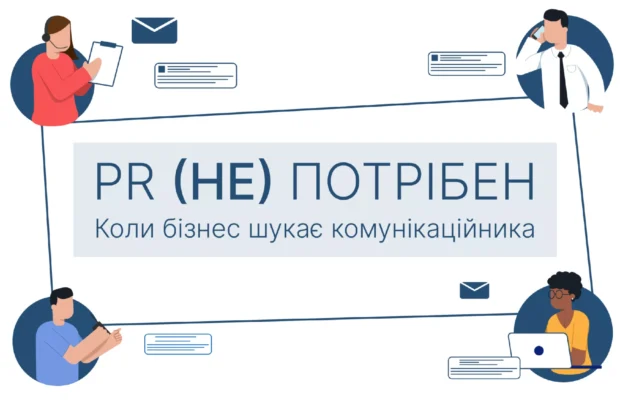Meaning in Control: Media and Experts in Action

We exist when people talk about us
And our reputation depends on who talks and how. In today’s oversaturated information space, people rarely form their own opinions about companies, brands, or individuals – media and influencers do it for them. One of the PR professional’s key tasks is to build effective, business-beneficial relationships with media and experts. This way, public opinion can be shaped in a controlled and predictable manner – as much as possible in our unstable times.
When do you need a middleman?
In Ukraine, as in most countries, you can build relationships with newsroom directly or through a media buyer. Each company chooses its own model. But practice shows: direct communication with media works best when your news is positive or at least non-conflict. It’s not necessarily easier for the PR team, but it’s definitely cheaper. Still, working through an agency can be more effective – especially during a crisis, when it might be the only viable option.
And what about experts?
First, choose the right one. Not every influencer is a key opinion leader, and not every key opinion leader is an influencer. Some are popular due to social media activity, others have deep niche expertise but aren’t widely known. Still, their opinion carries objectively greater weight and value. The thing is, for the broader audience, ‘objectivity’ is often not what resonates or drives engagement. That’s why it’s crucial to carefully weigh the pros and cons in each specific case, balancing credibility with audience perception.
A few tips for choosing an expert:
- Topic relevance. Serious topics require serious, preferably niche influencers. A lifestyle blogger with hundreds of thousands of followers might not be the best fit for discussing taxes.
- Reputation. Some experts and influencers come with baggage – scandals or controversial statements. Your message through them could backfire.
That’s why working with a PR agency is often the best choice.
In a reputational crisis, you need to act fast. But without experience, you risk ineffective or even harmful placements. To avoid this, we offer our services.
One common mistake businesses make
I often encounter the bias that media outlets should publish their materials for free. After all, everyone tends to see themselves as the most important, the most expert, the most valuable voice. That may be true to some extent – but do you know how it really works? The broader audience usually doesn’t care. And it is precisely audience interests that shape the editorial agenda. Yes, if your topic carries clear social significance or public benefit, there is a chance for free placement. However, if you have an important message and want to ensure it actually reaches your audience – without being filtered or reframed through the outlet’s editorial lens – it’s better not to take risks and to engage with the media on a paid basis from the start.


